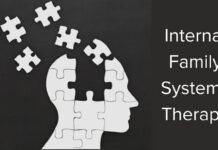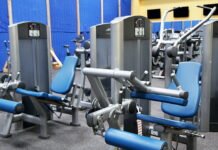Last Updated on March 12, 2024 by admin
In a world that constantly keeps us on our toes, maintaining equilibrium is not just a metaphorical aspiration but a physical necessity. This balance, both literal and figurative, is intrinsically tied to our vestibular system – a complex network within our inner ear and brain responsible for processing sensory information related to movement and balance. Vestibular disorders, which disrupt this balance, can have profound effects on daily living. Enter Vestibular Physiotherapy Sherwood Park, a specialized branch that focuses on diagnosing, managing, and treating vestibular disorders.
Table of Contents
What Is The Vestibular System?
Our vestibular system is responsible for the sense of balance and spatial orientation. It is crucial in helping us coordinate movements, sustain posture, and navigate our surroundings without constantly falling over. When this system experiences disruption, whether through injury, illness, or aging, it can result in symptoms such as dizziness, vertigo, imbalance, and spatial disorientation.
The Need for Vestibular Rehabilitation
For those facing vestibular disorders, everyday tasks become daunting challenges. Simple actions like turning around, bending down, or even walking can induce dizziness or vertigo spells. Vestibular rehabilitation therapy Sherwood Park offers therapeutic interventions designed to alleviate these symptoms.
By focusing on exercises and techniques that enhance the body’s ability to adapt to vestibular challenges, Vestibular rehabilitation can significantly improve the quality of life for affected individuals. Physiotherapy Clinics have equipped themselves to offer this specialized care, ensuring patients in the Sherwood Park region have access to this essential therapeutic approach. Here, we delve into some prevalent conditions, their implications, and how vestibular physiotherapy can help.
Benign Paroxysmal Positional Vertigo (BPPV):
BPPV causes sudden episodes of dizziness or the sensation that one’s surroundings are spinning, usually triggered by specific changes in the position of one’s head. This can lead to difficulty in performing routine activities, a fear of falling, or even nausea.
Vestibular Physiotherapy’s Role: Techniques like the Epley or Semont maneuver are used to reposition displaced otoconia (tiny calcium particles) within the inner ear, addressing the root cause of BPPV and relieving symptoms.
Labyrinthitis and Vestibular Neuritis:
Both conditions result from an inner ear problem causing sudden and severe vertigo. It could be accompanied by hearing loss and a ringing sensation in the ears. Activities like walking or even standing might become challenging due to balance issues.
Vestibular Physiotherapy’s Role: A combination of balance exercises and gaze stabilization exercises helps reduce the intensity of vertigo and trains the brain to regain balance.
Ménière’s Disease:
Ménière’s Disease leads to episodes of vertigo, ringing in the ears, and occasionally, hearing loss. The unpredictability of vertigo episodes can create anxiety and make tasks demanding concentration difficult.
Vestibular Physiotherapy’s Role: While physiotherapy doesn’t cure Ménière’s, it can significantly alleviate symptoms. Habituation exercises, for instance, help reduce the response to triggers of vertigo.
Bilateral Vestibular Loss:
Caused by damage to both inner ears, this condition leads to balance disturbances, especially in the dark or when walking on uneven surfaces. It can hamper mobility and independence.
Vestibular Physiotherapy’s Role: Emphasis is on balance training and exercises that improve visual dependence, aiding in better spatial navigation.
Post-concussion Syndrome:
After a concussion, individuals might experience dizziness, balance problems, and cognitive disturbances, impacting daily activities and overall well-being.
Vestibular Physiotherapy’s Role: Customized therapy plans address dizziness and balance problems. Techniques can include gaze stabilization exercises, balance retraining, and strategies for managing cognitive disturbances.
Age-related Dizziness and Imbalance:
With age, degeneration in vestibular function can result in dizziness, unsteadiness, and a higher risk of falls.
Vestibular Physiotherapy’s Role: The focus is on fall prevention, strength training, and balance exercises, ensuring safety and improving confidence in daily movements.
Core Techniques in Vestibular Physiotherapy
- Habituation Exercises: Aimed at reducing the dizziness and vertigo symptoms by repeated exposure to the specific movement or situation causing the symptom.
- Gaze Stabilization: These exercises improve the eye’s ability to maintain focus on an object even when the head is moving.
- Balance Training: Incorporates a variety of exercises aimed at improving one’s static and dynamic balance.
- Substitution Strategies: In cases where the vestibular system cannot be restored, these strategies train other sensory organs to compensate for the loss.
- Postural Control Exercises: Aimed at enhancing balance, these exercises focus on improving the stability of individuals and reducing the risk of falls.
Benefits of Vestibular Rehabilitation
- Reduced Vertigo and Dizziness: With regular therapy, many patients report significant reductions in the frequency and severity of their vertigo and dizziness episodes.
- Improved Balance and Spatial Orientation: This not only aids in daily tasks but also reduces the risk of fall-related injuries.
- Enhanced Quality of Life: By addressing the root causes and symptoms of vestibular disorders, patients can return to a more normal and active lifestyle.
Lifestyle Adjustments: Complementing Vestibular Physiotherapy
Managing a vestibular disorder doesn’t end in the clinic. Adopting certain lifestyle changes can significantly improve symptoms and overall well-being. This may include dietary adjustments, practicing specific at-home exercises, or learning techniques to manage stress and anxiety, which can exacerbate vestibular symptoms.
The Equilibrium Restored by Vestibular Physiotherapy
While vestibular disorders can undoubtedly be disruptive, they don’t have to dictate the terms of one’s life. With the right therapeutic approach, like the one offered by Vestibular Physiotherapy, balance can be restored, both in physical movement and overall well-being. It’s about reclaiming stability, control, and, ultimately, wellness. For those in the Sherwood Park region, resources like Emerald Hills Physiotherapy Sherwood Park stand ready to assist in this journey towards equilibrium and health.






















